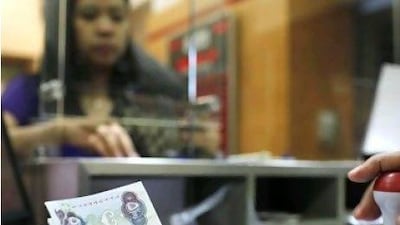Business at the UAE's biggest money-exchange network could decline by as much as 15 per cent in the event of a second global downturn.
Financial Fallout: Read The National's coverage of the global economic chaos
Dark clouds force Opec to cut back oil forecast Opec lowered its forecast for global oil demand, giving ammunition to member countries who have pushed for production drops. read article
Crash halts as traders try to stem losses The stock market crash in Europe halted abruptly yesterday as traders tried to claw back billions of Euros of losses accumulated in more than two weeks of turmoil. Read article
Gulf's US assets in firing line Standard & Poor's downgrade of the US rating has raised questions about the wisdom of keeping a large portion of the Gulf's several trillion dollars of savings in US treasuries. read article
Al Ansari Exchange saw the same decline in remittance and foreign exchange in the months following the 2008 global banking crisis.
Rashed Al Ansari, the exchange's general manager, said the company could face some loss of business, but added: "I don't expect [the drop in business] to be more than the first crisis."
The remittance side of the business tends to be more resistant than other sectors because foreign workers have to send money home to their families.
However, remittance and foreign exchange are likely to be hit. "The first thing we're going to expect is a lot of volatility, especially in terms of the different currencies that we have. You're going to see a lot of volatility, especially as we're pegged to the dollar," said Mr Al Ansari.
A new downturn could also reduce the demand for certain services, such as foreign exchange, as fewer people will take holidays abroad. Tourists who can afford to visit the UAE are expected to shop around for the best rates.
"There are telephone apps right now … that give you the live stock market currency exchange rate worldwide," said Mr Al Ansari.
Foreign workers, who send money home regularly, will look for ways to save money. "I can see people are maybe going to focus on more cost-effective means of remitting business. They're going to definitely shop around, even more than before." However, Mr Al Ansari said that maintaining the same level of service would be the key to retaining customers. "During the crisis your money becomes more dear to you, so you wouldn't risk your money so you look for reliability."
He is confident the correct measures will be put in place to avoid a double-dip recession.
But even if a second crisis is not averted, the UAE will be in a better place than some countries because of local and government initiatives, he said. Some of those initiatives, such as greater support for small and medium enterprises, would also benefit the remittance market.
"Those small businesses, most of them import materials and they have to remit money."


